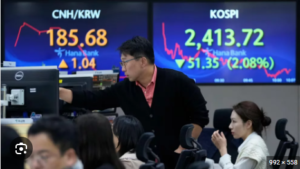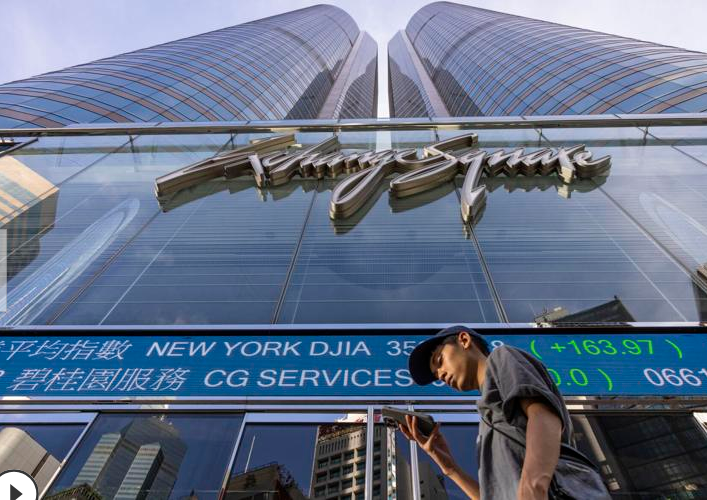Asian markets were sharply lower on Wednesday after Wall Street tumbled as it focused on the downside of a surprisingly strong job market: the likelihood that interest rates will stay high.U.S. futures and oil prices edged lower.

Tokyo’s Nikkei 225 index sank 2.3% to 30,526.88 and the Kospi in South Korea dropped 2.4% to 2,405.69.Hong Kong's Hang Seng skidded 1.3% to 17,115.62. Troubled property developer China Evergrande was down 11% after plunging 28% on Tuesday.
Australia's S&P/ASX 200 shed 0.8% to 6,890.20. In Bangkok, the SET recovered from early losses, gaining 0.4%.On Tuesday, the S&P 500 lost 1.4% to 4,229.45. The Dow sank 1.3% to 33,002.38, wiping out the last of its gains for the year so far. The Nasdaq composite led the market lower with a 1.9% drop to 13,059.47 as Big Tech stocks were among the market’s biggest losers.
Amazon fell 3.7%, Microsoft dropped 2.6% and Nvidia lost 2.8%.The Dow is down 0.4% for the year so far, after being up nearly 8% at the start of August. The S&P 500, which is the index more 401(k) investments are benchmarked against, has sliced its gain for the year so far to 10.2%.
Stocks fell after a report showed U.S. employers have many more job openings than expected. Expectations that interest rates will stay high are pressuring stocks as Treasury yields rise in the bond market.Such weight has been the main reason the S&P 500 has lost more than 40% of its value since the end of July, after charging higher for much of the year.
The 10-year Treasury yield climbed Tuesday to 4.79% from 4.69% late Monday and from just 0.50% early in the pandemic. It touched its highest level since 2007.When bonds are paying so much more in interest, they pull investment dollars away from stocks and other investments prone to bigger price swings than bonds. High yields also make borrowing more expensive for companies and households across the economy, which can hurt corporate profits.
